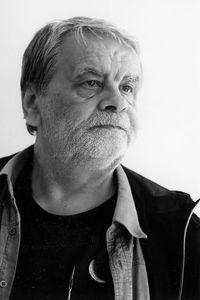Mati Unt was a renowned Estonian writer, essayist, and theatre director, born on January 1, 1944, in Linnamäe, Voore Parish, Jõgeva County, Estonia, and passed away on August 22, 2005, in Tallinn.
Mati's literary career began at the tender age of 18, when he wrote his first novel, Hüvasti, kollane kass (Goodbye, Yellow Cat),after completing high school. He then went on to pursue higher education in literature, journalism, and philology at the University of Tartu.
Mati's professional journey in the theatre began when he served as the Director of the Vanemuine Theater from 1966 to 1972, followed by stints as Director of the Youth Theater from 1972 to 1991 and the Estonian Drama Theatre from 1991 to 2003. He then transitioned to a freelance writing career.
In his personal life, Mati was married to television journalist and screenwriter Ela Tomson from 1965 until their divorce in 1973.
Throughout his career, Mati was an active member of the Estonian Writers' Union, joining in 1966. He was honored with the title of Honored Writer of the Estonian SSR in 1980 and became one of the signatories to the Letter of 40 intellectuals that same year.
Mati's contributions to Estonian literature were recognized with the Order of the White Star in 2000. In 2005, just before his passing, he was appointed as a Professor of liberal arts at the University.
Mati's literary legacy includes four successive novels, Võlg (The Debt, 1964),Elu võimalikkusest kosmoses (On the possibility of life in space, 1967),Kuu nagu kustuv päike (The moon like the outgoing sun, 1971),and Must mootorrattur (The Black Motorcyclist, 1976),which solidified his reputation as a prominent writer.
Mati was also instrumental in introducing avant-garde theatre to post-Soviet Estonia. Several of his novels have been adapted into films since his death, including Sügisball ("Autumn Ball") in 2007 by Veiko Õunpuu.
Mati Unt is buried in the Metsakalmistu cemetery in Tallinn, a testament to his enduring impact on Estonian literature and culture.





















